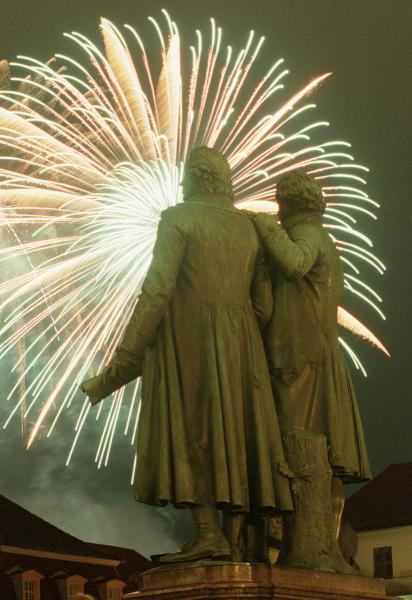Source

Source: picture-alliance / ZB (c) ZB - Fotoreport
As the cradle of Weimar Classicism and the city where Johann Wolfgang von Goethe, Friedrich Schiller, Christoph Martin Wieland, and Johann Gottfried von Herder lived and worked, Weimer has played a special role in German cultural history. In 1999, the year Weimar was designated "European capital of culture," a number of important anniversaries took place for Weimar and Germany. These included the 250th anniversary of Goethe's birth, the 240th anniversary of Schiller's birth and the 90th anniversary of the Weimar constitution. The anniversaries were part of an extensive "capital of culture" program, which featured a total of 300 events ranging from exhibitions, concerts and conferences to operas and theatrical performances. The federal government and the state of Thuringia contributed 63 million Deutschmarks for the cultural program in Weimar. Many of the events emphasized the city’s direct proximity to the Buchenwald concentration camp and thus the symbolic contiguity between the “cultural nation” [Kulturnation] of Germany and the crimes of the Nazi regime.

Source: picture-alliance / ZB (c) ZB - Fotoreport